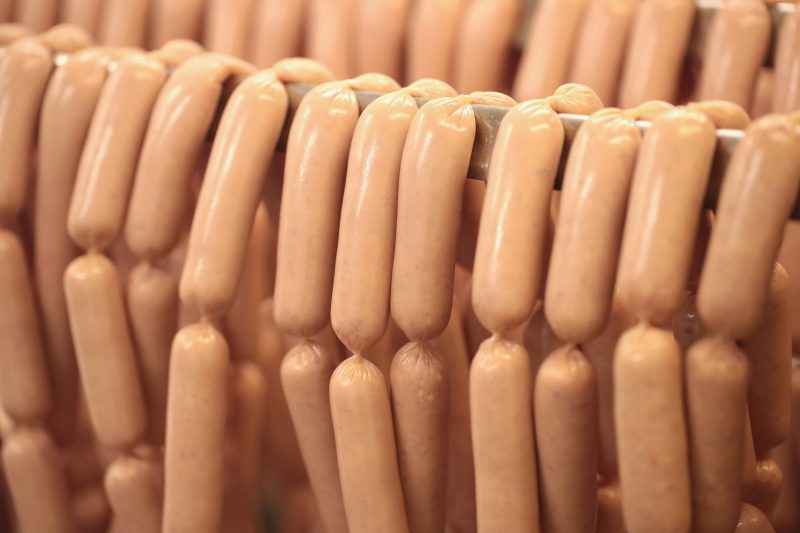China to block pork imports from Canadian firm: Xinhua
Canada’s agriculture minister said earlier this month that Chinese customs had increased inspections of Canadian pork imports (SCOTT OLSON)
Beijing (AFP) – China will suspend pork imports from Canada’s Frigo Royal after traces of a banned feed additive were found in its shipments, state media said Tuesday, amid a diplomatic row between Ottawa and Beijing.
Sino-Canadian relations have been frosty since the December arrest in Vancouver of a top executive of telecoms giant Huawei on a US extradition request related to alleged Iran sanctions violations.
In a move seen as retaliation, Chinese authorities have detained two Canadian nationals — a former diplomat and a business consultant — on suspicion of endangering national security, and sentenced two others to death for drug trafficking.
China has also blocked canola shipments from two major Canadian producers earlier this year, citing fear of pathogens.
Canada’s agriculture minister said earlier this month that Chinese customs had increased inspections of Canadian pork imports.
Now the official Xinhua news agency said Tuesday that customs officials in the eastern city of Nanjing had found that pork shipments from Frigo Royal earlier this month contained Ractopamine.
The feed additive, which boosts the growth of animals, is widely used in the United States but banned in the European Union and China.
“Customs will suspend the company’s pork exports to China, and suspend the Canadian veterinary health certificate issued by it,” Xinhua said, citing customs officials.
Chinese customs will “intensify inspections” of Canadian pork for any traces of the illegal substance and “all problematic products will be returned or destroyed,” Xinhua said.
Canadian Agriculture Minister Marie-Claude Bibeau told reporters in Ottawa that the Canadian Food Inspection Agency is investigating to determine “if in fact Ractopamine was in the product, where it comes from, why.”
Last month Canada increased loans to farmers to cushion the blow from a drop in Chinese demand for canola, the country’s most valuable crop.
China, which last year bought 40 percent of Canada’s canola exports valued at Can$11 billion, banned imports from two major Canadian canola producers — Viterra and Richardson International — saying it detected harmful organisms in shipments. Canada disputes the finding.
There are “no scientific reasons for this action,” Foreign Minister Chrystia Freeland has said, while China has defended its ban as “completely reasonable and legal” to protect the health and safety of its citizens.
Disclaimer: Validity of the above story is for 7 Days from original date of publishing. Source: AFP.


